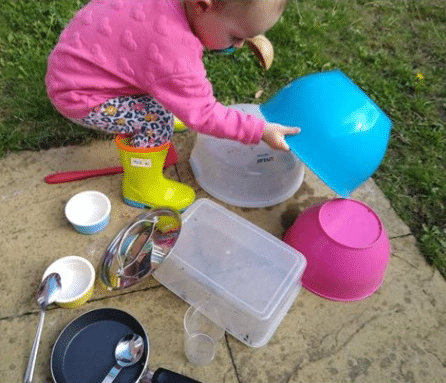How can dummies affect speech and language development?
Whether you call them dummies, soothers or pacifiers, there is lots of information available about how they can negatively impact a child’s development.
We want to share some of this information to help you make an informed decision about how your child uses a dummy, and how to avoid later difficulties.
Research does show that dummies are a helpful aid to settle your baby and can offer them comfort. They can also even reduce the risk of cot death in very young babies.
However, as your child grows older, research shows that these benefits reduce rapidly and that continued use can have a negative impact on your child’s speech and language development.

The reason for this is that your baby needs to babble before they can learn to talk. They need to have full use of their tongue and mouth movements. This allows them to experiment with sounds and have opportunities to copy adults noises and words.
A dummy restricts the full tongue and mouth movement needed for your baby or toddler to learn to make noises and eventually talk. Continued dummy use can also effect the shape of your child’s growing teeth.
Your child is learning the skills of talking and communicating the moment they are born, and as they reach 12 -18 months old, they start to make huge developmental leaps in their talking and communication skills.
If your child has a dummy in their mouth, they are less likely to experiment with sounds and babbling – all of which are essential to the development.

When your child has a dummy in their mouth, the front of the tongue goes flat and the back of the tongue goes up. In this position, your child cannot pronounce sounds correctly.
After persistent dummy use it is hard to re-teach the tongue to change position to form a ‘normal’ tongue shape, and equally hard to re-teach your child how to say the sounds in words correctly.
Speech Therapists recommend ‘ditching the dummy’ around the age of 12-18 months, if not before, so it doesn’t have an impact on their future talking skills.

Top tips:
- Minimise use: try to keep the use of a dummy to a minimum, and set clear boundaries for the times your child has it
- Keep the dummy just for naps and bedtime: as your child gets older, you can encourage them to put the dummy in their cot/bed ready for bedtime – this will soon become part of their routine.
- Out of sight, out of mind: put the dummy somewhere out of sight when your child is not using it
- Make sure your child doesn’t have a dummy while they are playing, sharing stories and exploring the world: they will then be more likely to experiment with making sounds and imitating your sounds and words
- If your child persistently uses a dummy: try to distract them with other exciting things – it won’t take long before they forget about it while they are playing
- Remember: a dummy is just one tool to offer comfort, and you can decide when and how your child uses it

FAQ:
My child is 3 years old and still uses a dummy. Will this affect their speech development?
The short answer is, yes it can. Using a dummy for long periods of time can prevent the tongue from moving into a more natural position for both eating and speaking purposes. The muscles of the tongue may not get enough exercise and could be weaker than they should be.
Also, children who have a dummy in for long periods of time don’t spend as much time talking and therefore don’t get the practice they need to learn.